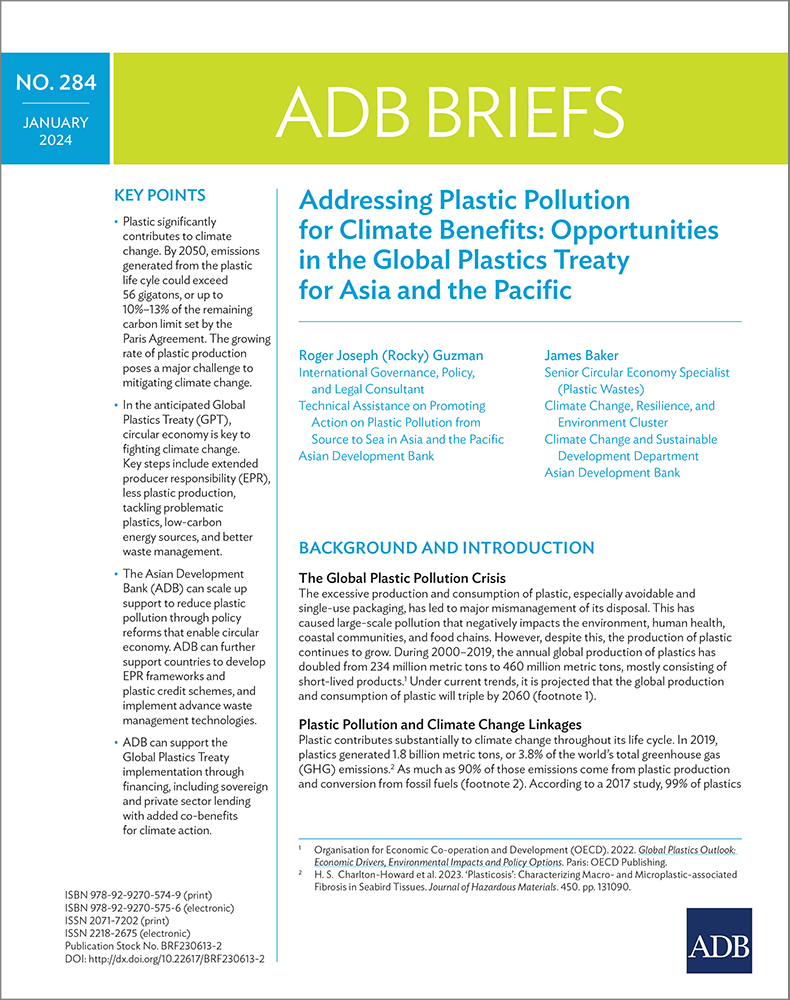Addressing Plastic Pollution for Climate Benefits: Opportunities in the Global Plastics Treaty for Asia and the Pacific
This brief assesses how the anticipated Global Plastics Treaty could cut plastics production and set extended producer responsibility targets
Plastic significantly contributes to climate change. By 2050, emissions generated from the plastic life cycle could exceed 56 gigatons, or up to 10%–13% of the remaining carbon limit set by the Paris Agreement.
In March 2022, the United Nations Environment Assembly adopted a resolution with the objective of ending plastic pollution. This resolution outlined a target to draft an internationally legally binding agreement, the Global Plastics Treaty, by 2024, to be opened for adoption by countries by 2025.
The brief looks at the plastic life cycle and analyzes disposal and waste management. Assessing how the treaty could cut production and set extended producer responsibility targets, it shows how the Asian Development Bank can help countries implement the treaty to support a just transition for all.


